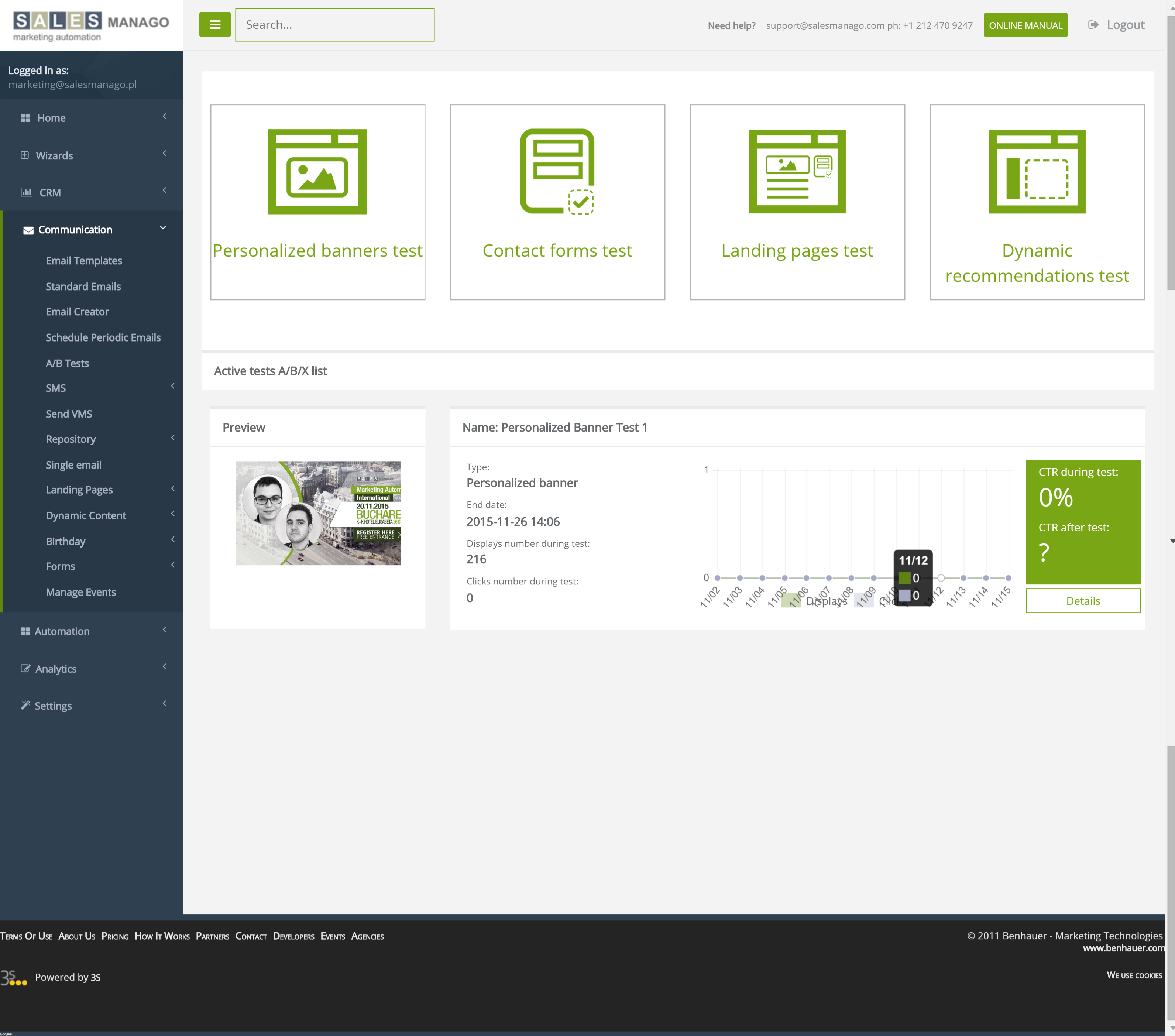What is a marketing campaign? We tend to associate the term with outbound operations: buying advertising space, organizing a big contest, or implementing a brand new solution or promoting an in-depth report or ebook. But in fact, you should treat every marketing action as a campaign.
10 Commandments of Email Marketing. Download Free Ebook
Campaign: a new definition
A standard definition of a marketing campaign is pretty broad: it’s „a coordinated series of steps that can include promotion of a product through different mediums (television, radio, print, online) using a variety of various types of advertisements” (Investopedia).
But we tend to forget that our everyday tasks, run on a daily basis, are also campaigns.
Marketing campaign today
Each action that helps your company develop, increases engagement, awareness or sales should be called a campaign and treated as such. That includes:
• content marketing
• dynamic emails (like abandoned cart rescue messages)
• automation rules
• Lead Nurturing and welcome cycles
• Remarketing
• Social media procedures
• Lead Generation (like contact forms)
• In-App communication and push notifications.
Consequences for marketers
It’s not about theoretical corrections. When you broaden the definition, you change the attitude. Treating each action as a campaign means:
– planning and setting specific, measurable goals
– measuring its efficiency with KPIs
– testing
– optimizing.
That’s why you should calculate ROI not only for a spectacular operations but also for everyday processes and regular practices.
Why change the approach?
When you consider each action a campaign, you start to monitor their performance closely and are more eager to test them. You become more critical and scientific about the processes and see more room for improvement.

Easy SALESmanago A/B/X Testing module
Hence, you can get more from your regular tasks. It’s also important because of the human tendency to get used to patterns. What we do every day becomes natural and obvious, so we forget that it could be possibly done differently. We automatically:
– write the same number of posts per week/ month
– send the same Lead Nurturing campaign
– put contact forms in the same place
But stop treating your regular actions naturally. See these as campaigns that you can analyze, monitor and improve.
Important vs. urgent
Big campaigns involving cooperation with other businesses or media are more time-specific: they require perfect planning and have precise deadlines. That’s why it’s easier to measure their performance: you know when they start and when they end.
With regular processes it’s different. You have to implement your inner schedule of testing and monitoring. We tend to put more effort in outbound actions, willing to attract the new audience. As a result, we forget about optimizing the regular activities and to take care of our actual users and customers. Chasing new leads, we neglect the audience we already have and actions to convert them.
We attract, but don’t keep
Such attitude is reflected in stats. Companies spend $92 on driving traffic compared to $1 on converting (Econsultancy). And they have to pay for that later when they see that the traffic doesn’t translate into leads, and leads don’t translate into sales. Lead Generation and mistakes and unhandled lead leakage is the price.
Analyze ROI with Marketing Automation
Calculating all the metrics and KPIs for every action manually could be time-consuming, exhausting and impossible to run regularly. That’s where Marketing Automation technology comes to the rescue: the platform will analyze conversion and ROI of each rule of automation. It will also provide you functional A/B/X testing tool that will make testing super-easy and encourage testing on the everyday basis.
If you treat each action as a campaign, you develop an analytical approach. You:
– set a specific, measurable goal
– analyze the performance
– test
– optimize
your every action.
Do you adopt that philosophy?

 Follow
Follow
















